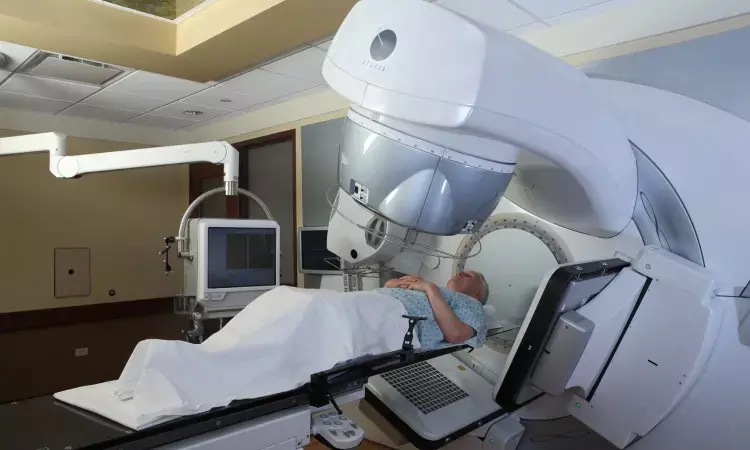- Home
- Medical news & Guidelines
- Anesthesiology
- Cardiology and CTVS
- Critical Care
- Dentistry
- Dermatology
- Diabetes and Endocrinology
- ENT
- Gastroenterology
- Medicine
- Nephrology
- Neurology
- Obstretics-Gynaecology
- Oncology
- Ophthalmology
- Orthopaedics
- Pediatrics-Neonatology
- Psychiatry
- Pulmonology
- Radiology
- Surgery
- Urology
- Laboratory Medicine
- Diet
- Nursing
- Paramedical
- Physiotherapy
- Health news
- Fact Check
- Bone Health Fact Check
- Brain Health Fact Check
- Cancer Related Fact Check
- Child Care Fact Check
- Dental and oral health fact check
- Diabetes and metabolic health fact check
- Diet and Nutrition Fact Check
- Eye and ENT Care Fact Check
- Fitness fact check
- Gut health fact check
- Heart health fact check
- Kidney health fact check
- Medical education fact check
- Men's health fact check
- Respiratory fact check
- Skin and hair care fact check
- Vaccine and Immunization fact check
- Women's health fact check
- AYUSH
- State News
- Andaman and Nicobar Islands
- Andhra Pradesh
- Arunachal Pradesh
- Assam
- Bihar
- Chandigarh
- Chattisgarh
- Dadra and Nagar Haveli
- Daman and Diu
- Delhi
- Goa
- Gujarat
- Haryana
- Himachal Pradesh
- Jammu & Kashmir
- Jharkhand
- Karnataka
- Kerala
- Ladakh
- Lakshadweep
- Madhya Pradesh
- Maharashtra
- Manipur
- Meghalaya
- Mizoram
- Nagaland
- Odisha
- Puducherry
- Punjab
- Rajasthan
- Sikkim
- Tamil Nadu
- Telangana
- Tripura
- Uttar Pradesh
- Uttrakhand
- West Bengal
- Medical Education
- Industry
Urethral stenosis post-radiation therapy has magnitude of side effects with poor patient reported QoL

Canada: A recent study published in Urology has shed light on health-related quality of life (QoL) in patients with urethral stenosis after radiation treatment for prostate cancer.
The researchers revealed urethral stenosis after radiotherapy to be a clinically complex entity with a broad scope of associated symptoms, including high rates of patient-reported incontinence, pain, sexual dysfunction, depression, and bowel dysfunction.
"This multi-focal nature combined with patient unawareness and often insidious presentation creates a uniquely challenging condition to treat," the researchers wrote.
Patients with localized prostate cancer typically have a choice of curative options, either surgery (radical prostatectomy) or radiotherapy (external beam or brachytherapy). There is no clarity on which treatment provides superior outcomes for both preserved genitourinary (GU) function and cancer control.
Kennedy Dirk and Keith Rourke from the University of Alberta, Edmonton, Alberta, Canada, aimed to evaluate patient-reported QoL (PRQoL) in patients presenting with membranous urethral stenosis after prostate radiotherapy. Urethral stenosis is an under-reported complication following prostate radiotherapy with a particular deficiency in PRQoL.
For this purpose, the researchers retrospectively reviewed patients presenting with urethral stenosis after radiotherapy from 2004-2022. Patient-reported quality of life was evaluated via patient survey using the Expanded Prostate Cancer Index Composite for Clinical Practice (EPIC-CP). The researchers identified 230 patients at a mean age of 67.7 years and a mean time to stricture diagnosis of 63.6 months post-radiotherapy.
The study led to the following findings:
- Of 87 patients completing the survey, 29.9% recalled being aware of urethral stenosis as a potential complication, and 51.7% had documentation of urethral stenosis as a potential complication.
- 33.5% of patients underwent urethroplasty, 59.6% repeat endoscopic treatment and 6.1% an indwelling catheter. 64.4% of patients reported urinary dysfunction as a “moderate” or “big” problem, 66.7% reported frequent or total incontinence, 64.4% required daily pad use and 50.6% reported incontinence as either a “moderate” or “big” problem.
- 85.0% reported poor or absent orgasmic dysfunction and 88.5% reported erections insufficient for sexual activity.
- 47.1% of patients reported rectal pain and 31.0% reported dysuria.
- Fatigue and depressive symptoms were reported by 60.9% and 41.4% of patients, respectively.
"The findings from this cohort of patients presenting with urethral stenosis after radiotherapy for localized prostate cancer showed the magnitude of side effects and global impact on PRQoL which has previously not been reported," the researchers wrote.
"There is a broad scope of patient-reported symptoms spanning lower urinary tract symptoms, incontinence, bowel dysfunction, sexual dysfunction, and systemic effects," they concluded.
Reference:
Dirk, K., & Rourke, K. (2023). Health-Related Quality of Life in Patients with Urethral Stenosis after Radiation Treatment for Prostate Cancer. Urology. https://doi.org/10.1016/j.urology.2023.10.041
Dr Kamal Kant Kohli-MBBS, DTCD- a chest specialist with more than 30 years of practice and a flair for writing clinical articles, Dr Kamal Kant Kohli joined Medical Dialogues as a Chief Editor of Medical News. Besides writing articles, as an editor, he proofreads and verifies all the medical content published on Medical Dialogues including those coming from journals, studies,medical conferences,guidelines etc. Email: drkohli@medicaldialogues.in. Contact no. 011-43720751


